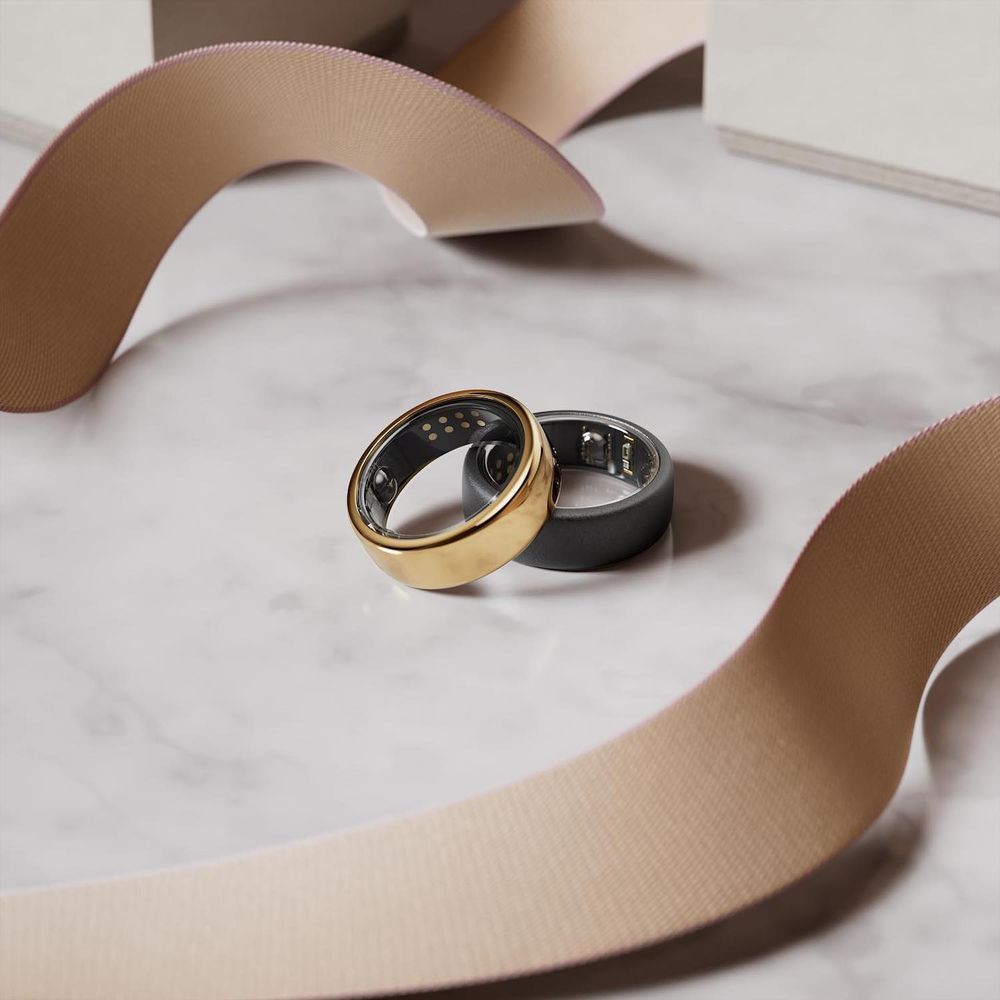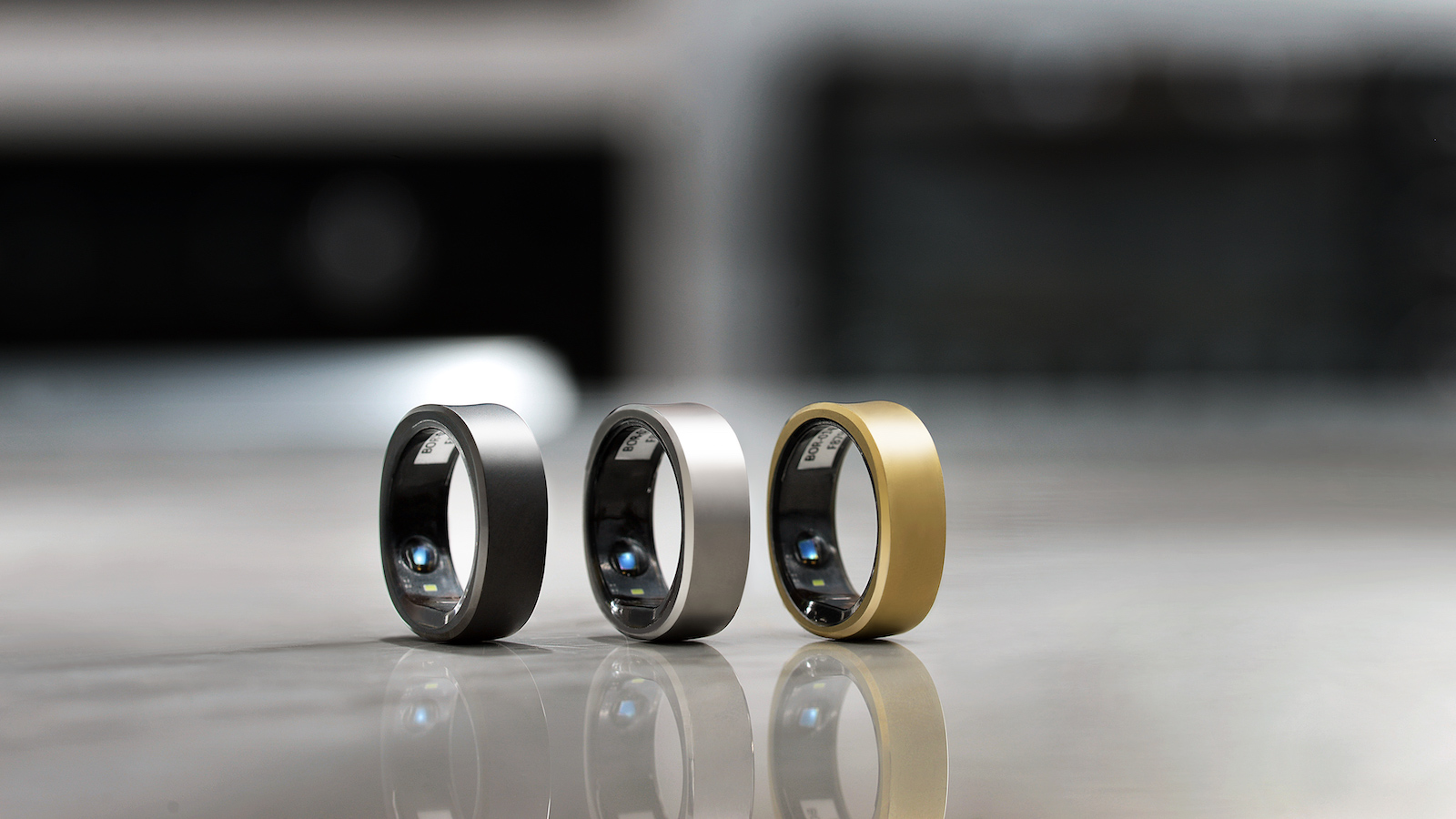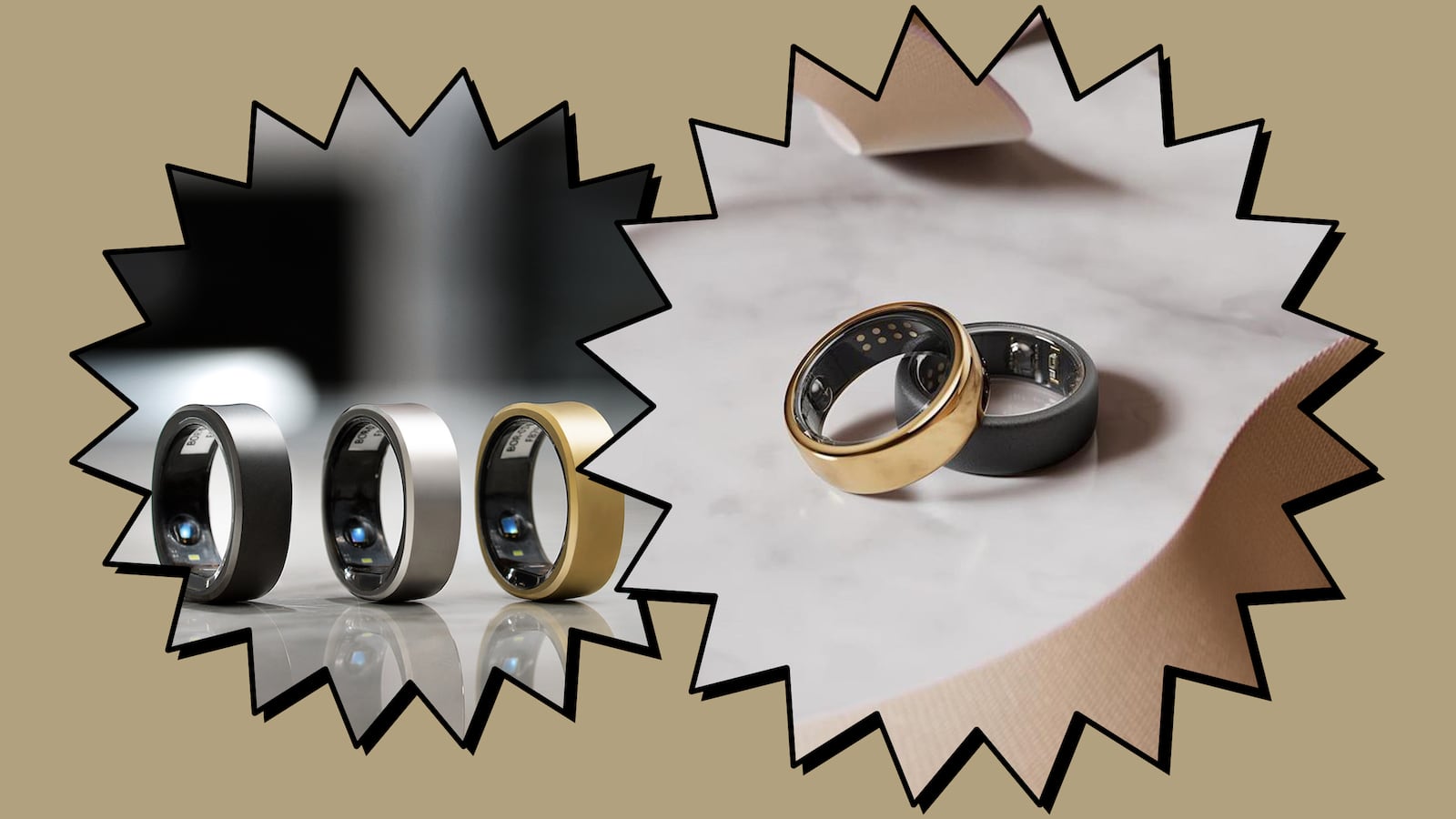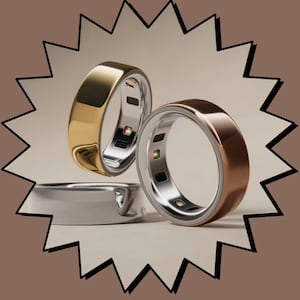Scouted selects products independently. If you purchase something from our posts, we may earn a small commission.
I’ve been using my Oura Ring for almost three years now (and recently upgraded to the Oura Ring 4), and it’s one of my favorite health and wellness purchases to date. I can’t really get on board with a bulky smartwatch, so the sleek and metallic-gold Oura Ring fits the bill when it comes to reliably tracking and evaluating my sleep, temperature, activity, pulse, and more without looking obnoxious on my wrist. Plus, according to some experts, opting for a smart ring worn tightly on the finger may yield more accurate health results (especially in the cardiovascular department) compared to other health wearables like smartwatches because of their placement closer to the skin and arteries.
“Oura was a pioneer of the ring form factor, and since our inception more than ten years ago, we’ve invested [extensive] research to ensure Oura Ring maintains its renowned science-backed accuracy,” Doug Sweeny, Chief Marketing Officer at Oura, tells The Daily Beast. “Our goal is to make understanding your health easily digestible and insightful to help our members make beneficial lifestyle changes that can ultimately improve their overall well-being.”
Of course, in addition to lacking a screen or touch buttons or triggers, the Oura Ring and its cheaper competitor, RingConn, also are not capable of taking calls and texts, providing GPS directions, or performing other cellular-specific functions—they’re merely health trackers. If you’re a heavy user of those smartwatch features, neither ring will be a suitable replacement. But if your primary reason for investing in a wearable is tracking and monitoring your health metrics in real-time (with the accompanying app), these two smart rings may be what you’re looking for.
Up until fairly recently, Oura Ring dominated the smart ring space—meaning it was the only non-sketchy wearable of its kind on the market. That’s changed in the past year, and RingConn’s smart ring promises to be a close competitor with a more wallet-friendly price tag and no subscription required. Naturally, when I discovered a more affordable health-monitoring smart ring had entered the small market, I knew I had to give it a spin and test it against the O.G. Oura Ring.
Both rings are sleek, lightweight, and available in metallic finishes. Both smart rings offer users similar and consistently reliable health monitoring and data metrics, but there are some key considerations to take into account before investing in either option. Read ahead to find out my thoughts on both smart rings.
Oura Ring 4
When it comes to design, Oura Ring takes the cake—no questions asked. With its shiny metallic finish (compared to the RingConn’s metallic, almost matte finish) and its interface on the corresponding app, from an aesthetic and design perspective, Oura Ring is the clear winner.

Price: Starting at $299 for the Heritage model, $399 for the Horizon model, and $349 for the Oura Ring 4.
Material: Titanium and PVD coating for the metallic colors and Diamond-like Carbon Coating (DLC) for black and stealth colorways.
Health functionalities: Sleep tracking, heart rate tracking (resting heart rate and heart rate variability), 24/7 body temperature (to help predict menstrual cycle and early signs of sickness), period prediction, calorie tracking, blood oxygen, stress monitoring, blood oxygen (SpO2 sensing), cardio capacity, cardiovascular age, steps, sickness detection, meal analysis, fitness zone tracking based on heart rate, and activity tracking.
Sensors: Optical heart rate, blood oxygen, body temperature, accelerometers.
Battery life: Four to eight days.
Warranty: One year.

Pros:
- Lightweight feel.
- Long battery life and fast charging (full charge in a few hours).
- Attractive sleek look and available in six finishes for the Horizon and four the Heritage.
- It’s water-resistant up to about 330 feet, so it can be worn in the shower or when washing your hands.
- Accurate heart rate data—measures resting heart rate with 99.6 percent reliability and monitors heart rate variability with 98 percent reliability, according to the brand.
- It can be used with both iOS and Android devices.
- It comes with a free sizing kit to ensure the utmost accuracy
- Measure changes in temperature, which can help indicate illness or infection and help women track ovulation.
- Monitors stress, which helps you identify triggers.
- Oura Ring now has a Find a My Ring feature in the app, allowing you to track your ring’s last location when it’s still powered on.
- Able to be exposed to a variety of temperatures, including dry and infrared saunas, hot yoga studios, etc.
- Non-allergenic inner molding.

Cons:
- It costs $6 a month for a membership to access all health data
- It is very easy to lose.
- Oura only supports certain types of workouts for automatic detection, mostly cardio-centric workouts. For example, yoga, pilates, and barre usually do not count as a workout unless manually input.
- Some users report inaccurate sensor readings, including nap detection, when just sitting still for an extended period of time.
- Does not come with a wireless charging case like RingConn.
RingConn Gen 2 Air
The two biggest advantages that RingConn has over Oura Ring are that it’s about $100 less expensive and doesn’t require a monthly (or any) subscription to access the data in the app, which will save you an additional $72 a year.

Price: Starting at $199 for the Gen 2 Air and $299 for the Gen 2.
Material: Titanium and PVD coating.
Health functionalities: Sleep tracking, daily activity monitoring, and calories burned tracking, stress index for “relaxation guidance,” skin temperature sensor, sleep apnea detection, oxygen saturation, heart rate, and heart rate variability measurement throughout the day (and on-demand), airway respiratory rate monitor, and standing time recording.
Sensors: Four photoplethysmography (PPG), four temperature sensors, and a 3D accelerometer.
Battery life: Full seven days off one charge (and charges fully in about 90 minutes).
Warranty: One year.

Pros:
- Affordable price and no subscription required.
- Long battery life and comes with a wireless charging case.
- Waterproof (IP68 rating, which means it can withstand dust particles and water submersion for up to 30 minutes).
- Offers slightly more vital sign metrics than Oura Ring, as well as a complete stress report in real-time and each day.
- Metric accuracy is on par with Oura’s.
- Can be used with iOS and Android devices.
- Offers a couple of health metrics that Oura does not, including blood oxygen saturation.
- Like Oura, it offers a sizing kit and offers nine sizes (more than Oura’s current offerings) for an extra personalized fit and more accurate metrics.
- You can sync data with other third-party apps, including Apple Health and Google Health.

Cons
- Left a small red ring on my finger after wearing it in the infrared sauna (which is probably user error), may not be able to withstand higher temperatures or humidity levels.
- Less shiny look on the metallic finish, which may be considered a pro for some who prefer a matte look.
- RingConn is slightly more noticeable when you’re wearing it due to the square-circle-shape and slightly textured outer coating.
Oura Ring Vs. RingConn: Overall Thoughts
If you’re looking to avoid monthly subscription fees and save $20-50 bucks, RingConn’s highly comparable smart ring is a solid alternative to the Oura Ring—especially if you prefer a matte and textured finish rather than a shiny metallic one.
While both rings’ health monitoring, metrics, and evaluations are roughly on par in terms of their accuracy and insights, the interface on the RingConn app looks slightly less sophisticated than that of Oura Ring’s (e.g., it uses a more juvenile font, emojis, etc.), but aesthetics aside, you’re practically getting the same data with both.
While I can’t say with certainty if the irritation while wearing the RingConn was the result of the inner molding not being non-allergenic like Oura Ring’s, I suspect this was caused by my highly (and abnormally) sensitive and reactive skin type, combined with thrice-weekly infrared sauna sessions. However, if you are prone to getting reactions to metal jewelry, easily irritated, or have experienced turning green while wearing certain jewelry (this did not happen with either Oura Ring or RingConn), it may be worth further investigating before making a purchase.
I am highly impressed by the lower-priced RingConn—both in terms of hardware and software. Because weight, comfort, and aesthetics are top considerations for me (if I can feel I’m wearing something, I simply won’t use it at all), I would repurchase the Oura Ring. But if you prioritize value overall, there is no reason not to save an extra $50 upfront and $72 a year on subscription fees. For me, the Oura Ring is worth the extra cost, but all things considered, both devices are a solid choice.







